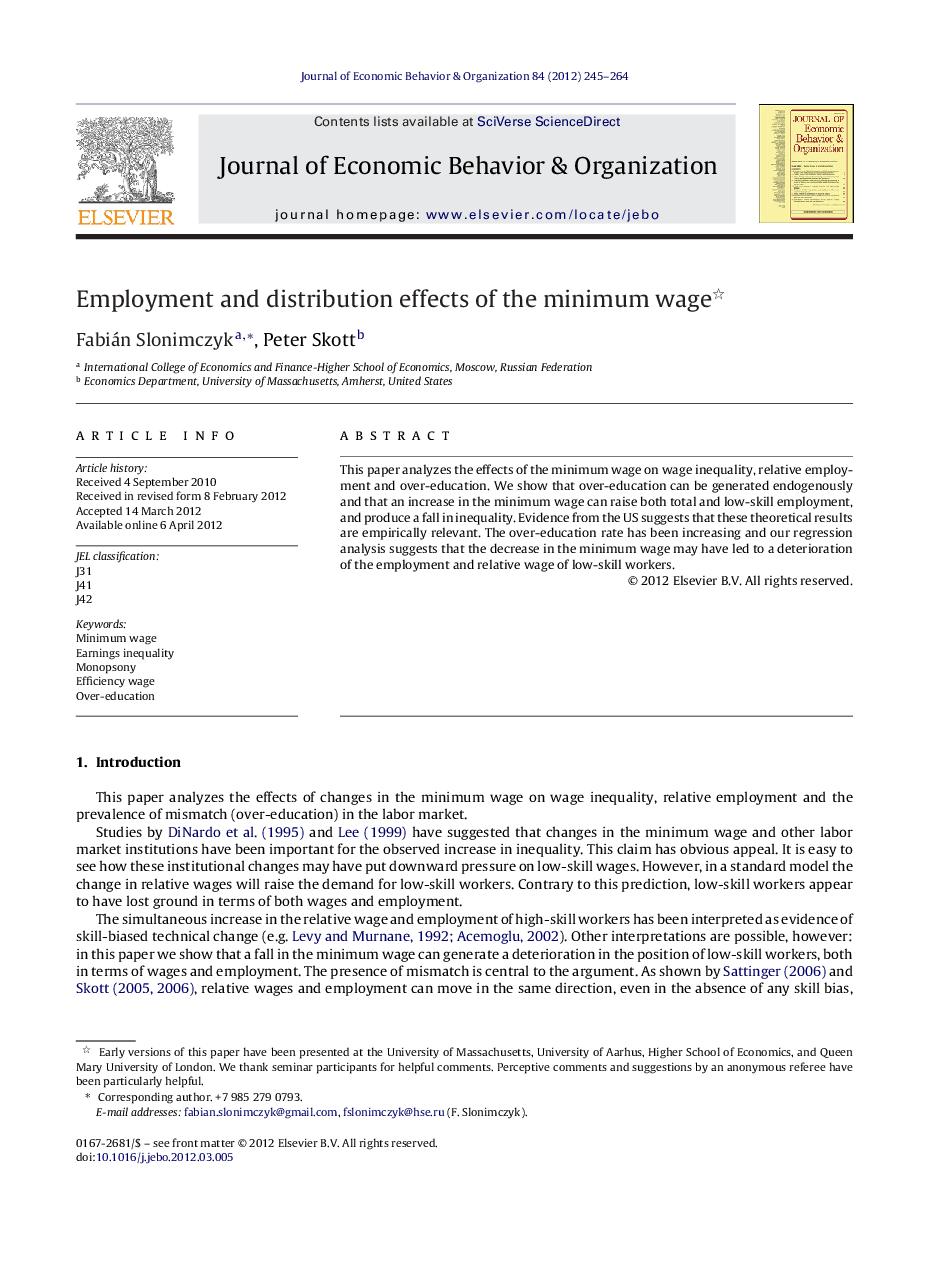| Article ID | Journal | Published Year | Pages | File Type |
|---|---|---|---|---|
| 883885 | Journal of Economic Behavior & Organization | 2012 | 20 Pages |
This paper analyzes the effects of the minimum wage on wage inequality, relative employment and over-education. We show that over-education can be generated endogenously and that an increase in the minimum wage can raise both total and low-skill employment, and produce a fall in inequality. Evidence from the US suggests that these theoretical results are empirically relevant. The over-education rate has been increasing and our regression analysis suggests that the decrease in the minimum wage may have led to a deterioration of the employment and relative wage of low-skill workers.
► We model an economy with high- and low-tech jobs, and high- and low-skill workers. ► Over-education (high-skill workers in low-tech jobs) can be generated endogenously. ► An increase in the minimum wage can raise both total and low-skill employment. ► Evidence from the US suggests these theoretical results are empirically relevant.
